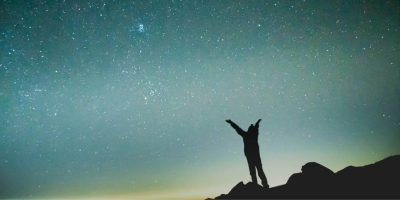 In Bangli, a town on the island of Bali, there’s an entrepreneur with a cause. When we booked a tour with him to learn about typical Balinese plants and medicines, we got to see “the real Bali”. In Bali, it’s easy enough to get caught up in tourist traps – everything is cheap(er) than at home and you can still hold on to the Western (or Asian) lifestyle you’re used to in terms of food and accommodation, if that’s what you want. Oh, don’t get me wrong, we can enjoy a few days in a resort or two – there’s a time and place for everything – but ultimately, that’s not why we’re here. So we were invited to Wayan’s home and introduced to his family.
In Bangli, a town on the island of Bali, there’s an entrepreneur with a cause. When we booked a tour with him to learn about typical Balinese plants and medicines, we got to see “the real Bali”. In Bali, it’s easy enough to get caught up in tourist traps – everything is cheap(er) than at home and you can still hold on to the Western (or Asian) lifestyle you’re used to in terms of food and accommodation, if that’s what you want. Oh, don’t get me wrong, we can enjoy a few days in a resort or two – there’s a time and place for everything – but ultimately, that’s not why we’re here. So we were invited to Wayan’s home and introduced to his family.
Starting your own business in Bali is a family kind of thing. Everyone pitches in: wife, brothers, sisters, cousins, even the parents get assigned certain tasks, depending on their abilities. One cooks, another is the driver, another is responsible for marketing…

We did a beautiful walk through the rice fields, and learnt about how people live, how they source their food, which herbs heal which ailments and so on. It was very interesting! Although I have to admit I’m so bad with names that I probably forgot half of it already…


We finished the visit with a gorgeous lunch of typical Balinese food – so now we’re very interested in doing a cooking class ;-) We also learnt how to make the typical yellow tonic (based on turmeric) which should do wonders for your health and immune system. 

As his business is starting to take off Wayan feels he should give back to the community. It’s a concept I’ve come across a few times already in Bali. If you’re lucky enough that you can live comfortably, feed your family well and send your children to school, it is time to do something in return. How beautiful is that?
For Wayan, it’s “The Plastic Project”. Anyone who’s been to Bali (or Indonesia in general) knows that any mountain or heavenly beach can be spoilt with waste. Plastic everywhere. All food used to be wrapped in banana leaves; they could be thrown into nature and nature would do her work. But now that a lot of food is packaged in plastic, the habit of throwing garbage on the street or in the sea when you’re done with it has become very problematic: plastic in the sea is eaten by fish is eaten by man. Plastic rotting near water wells spoils the water. And plastic being burnt smells terrible!
So Wayan lives by the principle: start small, first teach your own family to recycle – which he did. Now he’s going to give talks at the school, and inviting the villagers to his home to educate them about the importance of “The Plastic Project”. 
I wish Wayan good luck with his business and “The Plastic Project”. If you want more information about the herb walk, visit www.baliherbwalk.com.


